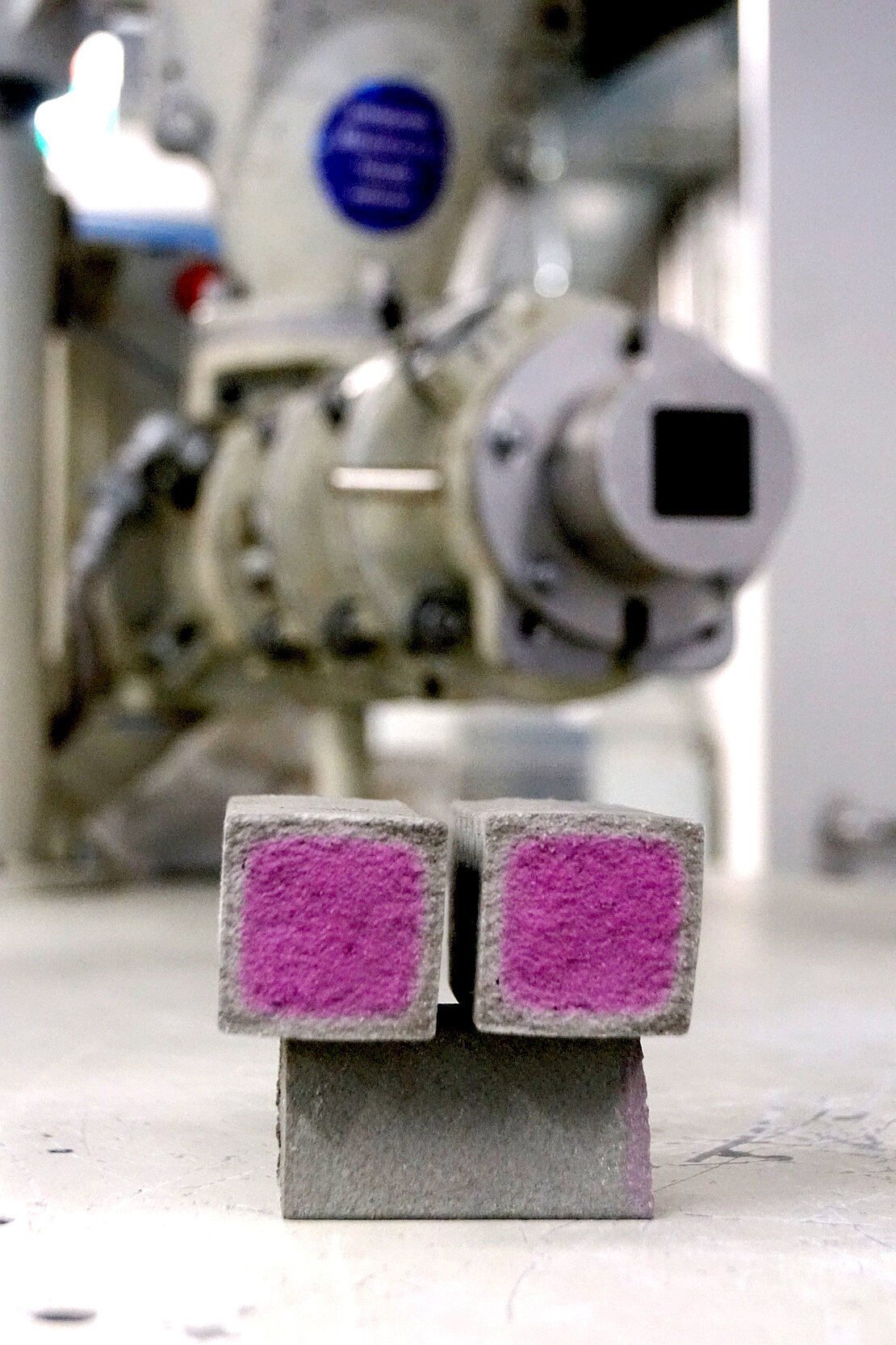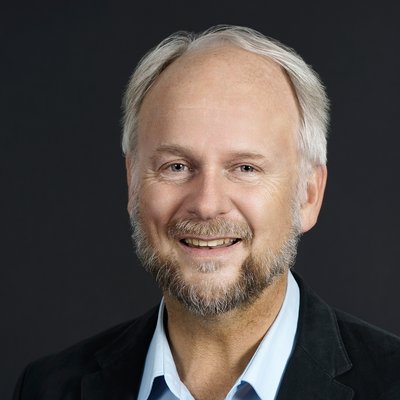Targeted CO2 impact on extruded concrete components
One objective of the CRC/Transregio 280 is to improve the CO2 balance in concrete construction through high material efficiency with the assistance of additive manufacturing methods such as extrusion. In order to realise the ambitious climate targets, climate neutrality must also be achieved in the building industry by 2050 at the latest. A new approach is to use the CO2 binding capacity of concrete specifically to increase the strength of structural concrete components.
During the accelerated carbonation of cement-bound building materials, the alkaline components of the hardened cement paste matrix react with CO2 to form calcium carbonate. This reaction reduces the pH value in the concrete. In steel-reinforced concrete components, this results in an attack, as the reduction of the pH value dissolves the passive layer of the reinforcing steel in the concrete. When using non-metallic reinforcements, however, the durability of the concrete cannot be negatively affected by a lower pH value. First own investigations show that a targeted carbonation even increases the strengths and densifies the structure. First results of project D02 have shown that textile-reinforced components with high performance as well as low building material input can be produced in the extrusion process. Due to the thinness of the extruded components, large amounts of CO2 can be bound in a forced carbonation process. In this project, the addition of CO2 will take place immediately after extrusion in order to enable a high binding of CO2. This will significantly improve the CO2 footprint of the extruded components due to the material-minimized design as well as the high storage potential of CO2.

Wissenschaftler

D-52062 Aachen (Germany)
![Prof. Dr.-Ing. Thomas Matschei [Translate to English:] Thomas Matschei](/fileadmin/_processed_/d/1/csm_2024_D02_Matschei_b2ae8c156b.jpg)
D-52062 Aachen (Germany)




